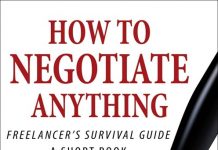 I have a pretty good track record as an ebook trend-spotter. It’s that time of year again. What do I see coming our way in 2014? Here are my annual epublishing predictions for the coming year.
I have a pretty good track record as an ebook trend-spotter. It’s that time of year again. What do I see coming our way in 2014? Here are my annual epublishing predictions for the coming year.
1) Someone will step in and fill the tagging void. I have noticed a few app store apps pop up in my RSS feeds lately with little notices on them that they ‘comply’ with the standards of some organization or other. The most popular seems to be a group called ‘Moms with Apps’ whose ‘members’ must have their app verified to be free (or not) of data collection, ads, social media, in-app purchases or external links, with a banner in the app store screenshot that explains how they did. I expect that following the self-published smut fiasco of 2013, we’ll see something like this arise for books. I’d also love to see someone start giving out a banner for self-published books which have been verified as free of typos, edited by a professional who is not the author and formatted in DRM-free, clean epub.
2) There will be a shake-up in the magazine market. First, there was Zinio. Then Rogers Media recently pulled their stuff out and started their own service. Now, Kobo is allegedly launching their own tablet magazine app. Who will succeed? Who will fail? Is there a market for e-magazines, as they currently exist in glorified PDF form, or will people prefer (and pay for) a less linear product? I expect to see some experimentation in this area, and some of the lesser players to drop out.
3) There will be some experimentation in the tablet app area. Kindle, Kobo and other main players all have tablet apps, and they seem to get updated more frequently than the e-ink firmware does. So I expect to see feature sets start matching up more specifically with the e-ink counterparts, and once that’s happened, I expect that the tablet apps will be the experimental platform for trialing new features. Kindle has the vocabulary builder that Kobo doesn’t have. Kobo has the Pocket integration the Kindle doesn’t have. I think they’ll throw out every feature they can next year to see what sticks as the e-reading platform matures.
4) We’ll see the rise of the publishing para-professional. I think the notion that a lone author can’t do it all will finally start gaining traction, and we’ll see a rise in freelance cover artists, copy editors, book promoters and so on. I think some of these people will come from actual publishing jobs, which they might lose during corporate herd-thinning and then decide to continue on their own. I think many of them will also come from author success stories who realize that they can set up a second revenue stream for themselves (and promote their own stuff too) by offering counseling, mini-courses and the like to other aspiring successes.
5) Niche sites for specialized self-published content will grow in popularity. I was recently made aware of two sites where teachers can post (and sell) their work to other teachers. I think we’ll see more like this very soon. It’s not ‘Kindle Store or Bust.’ There are other markets, and I think some of these specialized niches will try and mine the gold—and be successful. I think, too, that some of the tagging stuff from my first prediction might resolve itself in this way, and we’ll see specialized sub-areas of the main bookstore sites, for things like kid-safe content, Christian content and so on.
6) The library market will shrink significantly. Unfortunately, I think the public library market will be a victim to publisher pricing. Some publishers have raised the costs of their library e-offerings so significantly that libraries may drop out of their catalogues. Other publishers have raised them so much for consumers that may of these readers are turning to the free library offerings instead, and I think as publishers figure this out, they will try and close that loophole. I know I personally have been appalled at how high the prices are on some of Big Pub’s offerings, both of new release and of backlist titles. There is no way I will pay $18 for a five-year-old title which is now in $6 paperback! So I get it from the library (in ebook format, naturally) or do without. I think they are going to play games with the library ebooks to try and win back customers like me!
So those are my thoughts on the coming year. Am I right? Did I miss anything? I’d love to hear your thoughts about the year to come!

































I’d add one more, although it’s a wish rather than a prediction. It’s that publishers will finally acquire the good sense to charge per-checkout fee for ebooks rather than trying to make a go with grossly inflated sales prices to libraries.
This’d probably be the most profitable scenario:
1. Hold back hot titles from rental for six months or so until sales began to fall.
2. Make fading bestsellers available for rental, perhaps for a bit more. By that point, copies are so common, someone will typically borrow from a friend rather than buy, so those rental fees aren’t replacing many sales.
3. For backlist titles for which there’s still some interest, only the largest libraries are likely to buy a copy. That means that any rental fee from small to medium-sized libraries is money that otherwise wouldn’t be earned. Supply them with free copies to rent.
4. For backlist titles for which there’s little interest, no library is going to buy a copy, so any rental income is otherwise unobtainable income. Maximize that income by maximizing the distribution. Get copies to every willing library.
5. Dedicate a small slice of the advertising budget to promoting backlist titles in cost-effective ways, such as providing free review copies for bloggers and podcasters who promise to review them. Remember, if virtually every library in the county has that title for checkout, you don’t have to reach a wide audience to get a return on that advertising investment.
6. Use one rental title to sell or encourage the rental of other titles. Close that book with, “If you like this book, you might like….” links. Remember that with rental, every reader means added income.
7. Host a website that helps people discover books they might want to read and then links them to a local library where they can check it out for free.
–Michael W. Perry, Inkling Books
No. 4 has been around for years. The only difference I’ve seen in the last year or so is that self-pubs are now beginning to realize that a professional-looking book package including editing and cover art is necessary for success.
No.1 – “I’d also love to see someone start giving out a banner for self-published books which have been verified as free of typos, edited by a professional who is not the author and formatted in DRM-free, clean epub.” – has also been around for a while, courtesy of Awesome Indies and the like. Perhaps these offerings need a review by a respected ebook news site to help them along and raise awareness?
@Steph B. Excellent suggestion. We will get on that. Look for one soon.
@Mike: Fascinating ideas there. But keep in mind that public libraries rely on the support of taxpayers, and hot bestsellers tend to be a major draw, even though libraries are and should be about a lot more than just books.
While business models can be tweaked, an even more important issue exists–just how much money is going for content for public libraries in the United States each year? It’s only around $4.20 per capita or less than the cost of a slightly upscale hamburger. Total is around $1.3 billion, the price of just one ugly and ill-conceived office complex that the Defense Department threw up near me. I’m relying here on stats from the Institute of Museum and Library Services.
A partial answer, not a complete one, would be the creation of a national digital library endowment. Funding at the start could come mainly from philanthropists to get around the austerity craze in government. The endowment could help pay not just for content but also, in some cases, for school librarians and others whose socially useful work is also marketing in disguise for writers and publishers (in a good sense).
That’s what content-creators really need. I think it’s endlessly outrageous that typical American households are spending just $120 or so a year on nontextbook reading materials of all kind. If publishers and librarians can work together as smoothly as the Pentagon and its contractors so often do, both sides will come out ahead.
In terms of business models, from Day One back in the early 1990s, my evolving TeleRead proposal called for payment by the access. Then I found out that librarians really really hated the idea of eternal payments, even if the demand for most books falls off. They worried about books vanishing amid budget cuts. So I also began to appreciate the advantages of libraries truly owning books for real, as long as access was for just one patron at a time if libraries imitated the paper book model. Yet another possibility for publishers and writers wanting it is an upfront free for unlimited access.
Ultimately, I’ve concluded, librarians and content-providers both need flexible business models to accommodate the needs of different kinds of books. Certainly by enlarging the pool of money available, the endowment concept would reduce pressure on both libraries and the creative community.
For more thoughts on the endowment, see an FAQ at http://librarycity.org/?p=6933 and the related links, including one to the original proposal. In a related vein, see my just-posted TeleRead commentary on the need for the endowment and digital library systems not to forget the needs of the nonelite: http://newteleread.com/wordpress/library/national-digital-libraries-for-carmela-hernandez-and-family-not-just-the-american-elite/
Happy holidays,
David